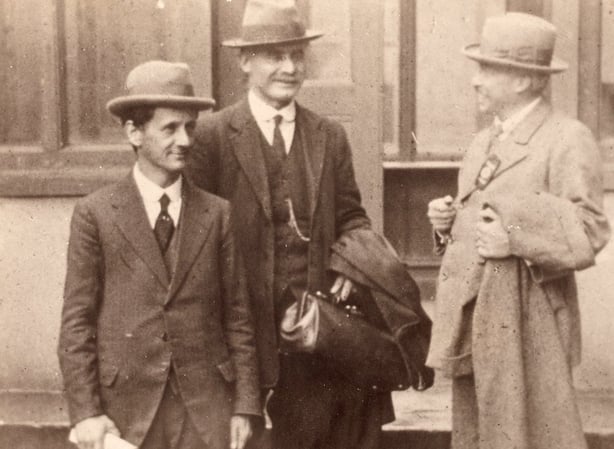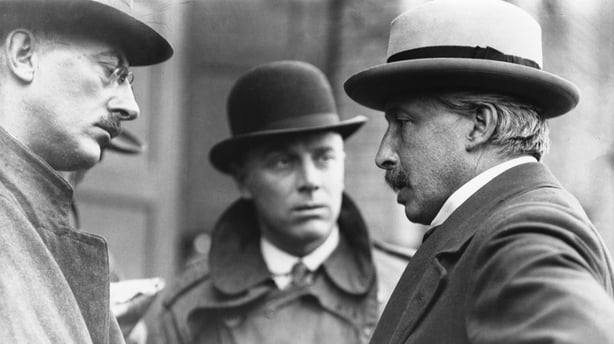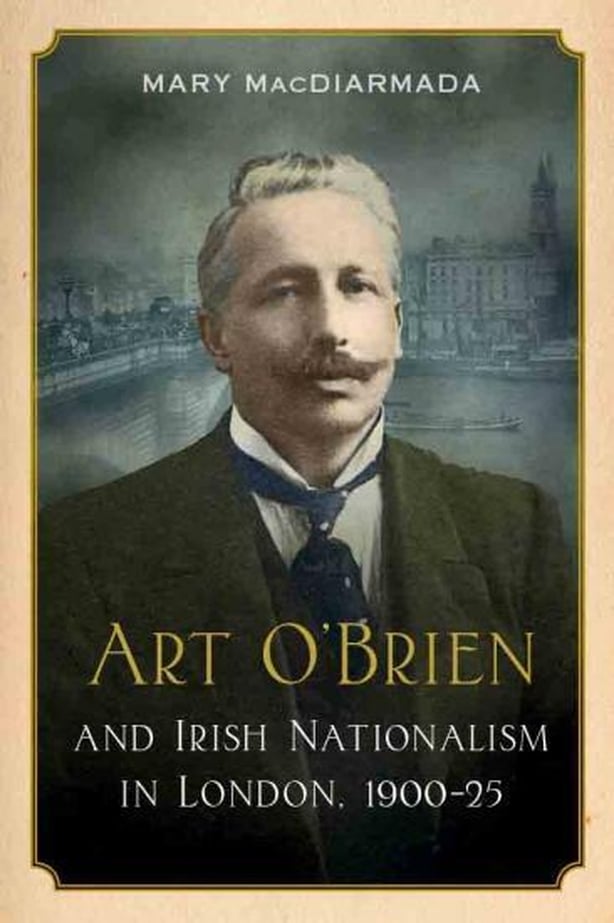Analysis: O'Brien's legal action against his deportation had the unintended effect of strengthening British civil liberties legislation
In late 1922 as the Irish Civil War progressed, the Irish Free State government came to the conclusion that republicans in Ireland were getting ammunition from Britain in large quantities. The British Home Office suggested it could support the Free State by arresting republicans and deporting them to Dublin.
In the early hours of March 11th 1923, over 100 people were rounded up in Britain under regulation 14B of the Restoration of Order in Ireland Act. They were taken from Liverpool to Kingstown (Dún Laoghaire) on HMS Castor. From Kingstown, the group was transferred in two navy destroyers to the North Wall, and thence to Mountjoy prison in Dublin.
Among the deportees was Art O'Brien who was born in London in 1872 to an Irish father and an English mother. He was a member of the Gaelic League and the Irish Volunteers and had organised finance for gun-running activities in 1916. After the Rising, O'Brien organised an extensive support system for Irish rebels who were imprisoned or interned in Britain, joined the IRB and was appointed Dáil Éireann envoy to London in 1919. By 1921, O’Brien vehemently rejected the Treaty and began fund-raising and gun-running for anti-Treaty rebels.

The Home Office was initially delighted with the effect of the deportations believing they had brought the anti-Treaty organisation in London to a standstill. However, the deportations caused a furore on both sides of the Irish Sea with questions asked in the Dáil and in the House of Commons as to the propriety and legality of the actions taken.
In the Dáil, Thomas Johnson, leader of the Labour Party, expressed concern as to whether the Restoration of Order in Ireland Act was used in contravention of Ireland’s new status. He believed the British government’s actions implied that it still had supreme control in Ireland. W.T. Cosgrave moved quickly to quell any objections insisting ‘we asked for those prisoners … we got those prisoners … the parties to the agreement in this case are equal’. Kevin O'Higgins insisted that ‘none of us lost a wink of sleep as to whether it was or was not a derogation of sovereignty.’
Art O’Brien had many friends in the ranks of House of Commons MPs, including Indian nationalist and communist Shapurji Saklatvala and Labour's George Lansbury. They both leapt into action in the House of Commons querying the legality of the deportations. Before the end of March, the British government had established an advisory committee to which the deportees could make representation. The Free State government agreed to allow individuals to travel back to Britain for the hearings and also allowed the detainees to avail of legal advice.

Habeas corpus
O’Brien was very quick to grasp this opportunity. He instructed his solicitors to make an application for a writ of habeas corpus to the divisional court in London. The British Habeus Corpus Act of 1679 specifically prohibited illegal imprisonment of British subjects in prisons ‘beyond the seas’. The basis of the legal challenge was that the establishment of the Free State had abrogated the Restoration of Order in Ireland Act and any regulations made thereunder were invalid.
The case was first heard on April 10th 1923, but was rejected. The application was renewed before the Court of Appeal three days later where Patrick Hastings, KC, appearing for O’Brien, invoked a statute of Charles II which declared it ‘illegal to remove the King’s lièges across the water’. In a unanimous decision, the court of appeal ruled that O’Brien was illegally deported and must be produced before the court on May 16th 1923. An appeal to the House of Lords by the British government against this decision was unsuccessful.
Ironically, in accepting O’Brien’s argument, the Court of Appeal cemented the status of the Free State as a separate judicial entity to the UK and as a nation state in its own right. Hugh Kennedy, the Irish Attorney General wrote 'the judgement is of great interest to the Free State embodying as it does the recognition by English law of the co-equality of the country with Great Britain’.
No one outside a small group of fanatics and dreamers can have the smallest sympathy for Mr O'Brien
Within days, all of the deportees were released and escorted back to England. Considerable coverage in the press made O’Brien a household name in Britain and Ireland. According to the Daily Mail. O’Brien ‘stood debonair and smiling in court … waiting for the Attorney General to produce ‘the body’’.
The London Times summed up the attitude of many in Britain — ‘No one outside a small group of fanatics and dreamers can have the smallest sympathy for Mr O’Brien … but the issue decided was of great constitutional importance'. The Daily News lauded the decision as ‘a warning to all future British governments of the danger of tampering with the liberty of British subjects’. The decision also meant that compensation had to be paid to all deportees.

The British cabinet met to discuss the appeal decision and decided that it was necessary to introduce a bill to indemnify the Home Secretary and the Attorney General from civil or criminal charges in relation to the deportations. Although this indemnity bill was passed, the government endured widespread criticism and ridicule. The O’Brien case became a ‘cause celèbre’ in British legal circles and the Indemnity Bill was described by Lord Justice Sankey some years later as ‘an ad hoc order of council to legalise ex post facto acts which were clearly ultra vires’.
O’Brien’s elation and his freedom were very short-lived as he and six other deportees were re-arrested immediately after their release at the Old Bailey. He was convicted of seditious conspiracy and sentenced to two years in jail on July 4th 1923. Ironically for him, the habeus corpus case affirmed the independent status of the Free State and was an unanticipated bonus for W.T. Cosgrave.
Mary MacDiarmada is the author of Art O'Brien and Irish Nationalism in London, 1900-25 (Four Courts Press)
The views expressed here are those of the author and do not represent or reflect the views of RTÉ




